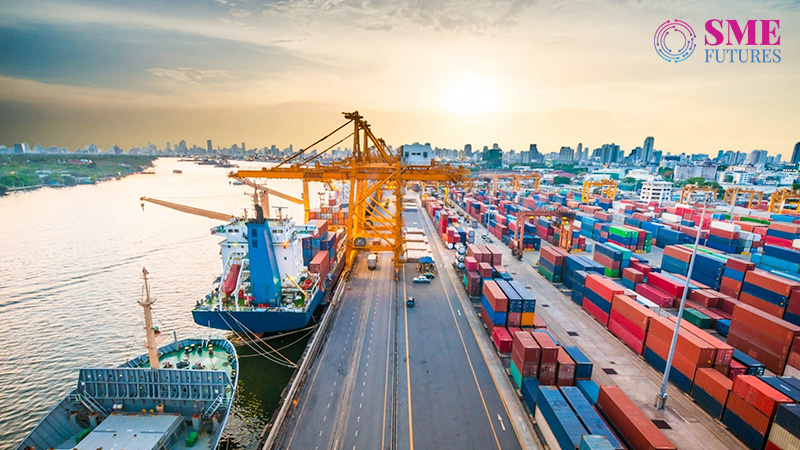The Centre on Friday unveiled new foreign trade policy for the period 2023 to 2028 with the aim of boosting exports to $2 trillion by 2030, even as trade has been impacted due to fluid geopolitical situation and disrupted supply chains.
Commerce Minister Piyush Goyal unveiled the policy in the presence of industry representatives and top officials of the ministry.
“I am confident that India’s trade will touch $2 trillion exports by 2030,” Goyal said after unveiling the policy.
The new foreign trade policy will encourage trade in Indian rupee
Commerce secretary Sunil Barthwal said that the thrust of the policy is that India is ready to trade in rupee with countries facing currency failure or dollar shortage.
Also Read: Q4 of FY22-23 sees lowest IPO fundraising in 9 yrs: Report
While the new policy was expected to be in place until 2028, the Directorate General of Foreign Trade (DGFT) Santosh Sarangi speaking on the occasion, said that there is no end date to the new foreign trade policy and it will be updated as and when required.
The new foreign trade policy shall mark a move from incentives to remission, will focus on export promotion through collaboration with exporters, states, districts, and Indian Missions, will promote ease of doing business and focus on emerging areas like e-commerce and export hubs.
In a presentation at the event, the commerce ministry said that WTO’s global trade forecast predicts a slowdown of one per cent in global trade in 2023.
It further informed that by March 2023, the nominal GDP of India will be around $3.5 trillion.
India is likely to cross $765 billion in exports in 2022-23, Sarangi said further.
Under the policy, the dairy sector would be exempted from maintaining average export obligation.
A special advance authorisation scheme has been extended to the apparel and clothing sector, DGFT said.
Also Read: Cryptocurrency under PMLA lens: Know what it means and how it will change the crypto space
Value limit for exports through courier services has been increased to Rs 10 lakh from Rs 5 lakh per consignment.
The foreign trade policy encourages ecommerce exports, which are expected to grow to $ 200-300 billion by 2023
The policy also introduces an amnesty scheme for one-time settlement of default in export obligation, Sarangi said.
The country is likely to end 2022-23 with total exports of $760 billion as against $676 billion in 2021-22.
Commenting on the new foreign trade policy Nisschal Jain, Founder and CEO, Shypmax said that the new FTP 2023 provides the right impetus to EXIM, e-commerce, as well as logistics stakeholders to boost exports amid the interim slowdown in the otherwise booming global trade especially with regards to the Indian Exim landscape.
“The new policy entails the roadmap to take India’s goods and services exports to $2 trillion by 2030. The move to focus on emerging areas like e-commerce and export hubs while promoting ease of doing business through collaboration with exporters, states, districts, and Indian Missions, is commendable. The decision to increase the value limit for exports through courier services from Rs 5 lakh to Rs 10 lakh per consignment, provides the much needed boost to the logistics sector. With this, the e-commerce exports are expected to grow to US$ 200-300 billion by 2030,”
Also Read: Indian goods exports easier due to harmonisation of standards: BIS chief
By minimising the export license fees from around 100,000 to 5,000, MSMEs have been given their due share of relief. This will also expand the horizons of the export market in India and make India’s a far more competitive ecosystem.
“Another factor which strengthens India’s footing in the global market is the internationalisation of rupee which comes off as very beneficial for exporters. Their dependency on dollar pricing will start to decline. Additionally, 4 new towns of excellence along with 39 existing towns will focus on exports of handicrafts, handlooms supporting the small-scale artisans,” he said
All in all, when these orders come into effect, logistics stakeholders including logistics players will witness a competitive environment in terms of export orders, trade and employment opportunities. This has to be the FTP of Amrit Kaal due to its focus on small and new-age businesses (e-commerce).” he adds.











